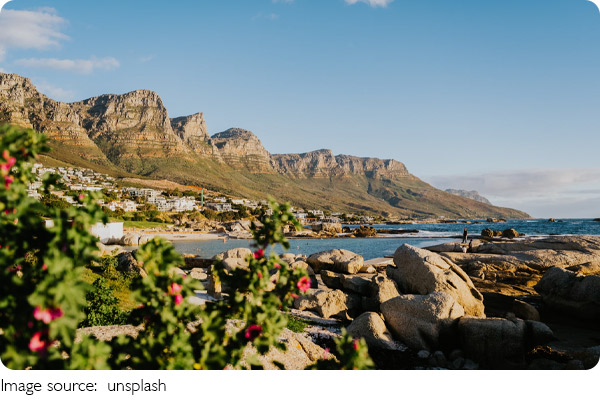Eritrea: Quiet Wonders

Friends, curious about a destination where vintage architecture, calm seaside towns, and time‑honored rituals still set the pace? Eritrea rewards slower travel with walkable city centers, clear Red Sea water, coral‑stone old quarters, and welcoming market days.
This 5‑stop guide shares what to do, how long to allow, and what it tends to cost in dollars—so planning feels simple, respectful, and delightfully unhurried.
Asmara Stroll
Set aside a half‑day to explore Asmara’s immaculate avenues and 1920s–40s landmarks. A private city walk typically costs $25–$40 for 2–3 hours, or $8–$12 if joining a small group. Add $2–$5 for landmark entries (when open) and $3–$6 for a street‑side espresso and pastry. Taxis within the center often run $2–$4 per hop; most sights cluster along Harnet Avenue, so walking is practical. Dress for mild highland weather, bring small bills, and time photos for warm late‑afternoon light.
Red Sea Time
For a sea‑day, travel from Asmara to Massawa (plan 3.5–4.5 hours by private car, typically $90–$140 one way shared among passengers). In Massawa, budget $15–$25 for a beach‑day setup (shade, chairs) at a local operator and $6–$12 for simple lunch plates and fresh juice. Boat rides to nearby islands commonly range $45–$80 per person depending on distance and group size; basic snorkel sets rent for $10–$15. Go early, carry a sun shirt, and pack a dry bag for phone and documents.
Massawa Old Town
The old quarter’s pale coral‑stone façades and arcaded lanes shine in soft morning or golden‑hour light. Hire a local guide for $15–$25 to frame the history of the waterfront, civic buildings, and trading streets (60–90 minutes). Short tuk‑tuk or taxi hops around town usually cost $1–$3; cold drinks and snacks are $1–$3 at kiosks. Wear closed shoes for uneven stone, keep photography unobtrusive, and plan shaded breaks—coastal heat builds quickly from midday.
Coffee Ceremony
Experiencing a traditional coffee ceremony offers a warm window into everyday hospitality. In Asmara or Keren, cafés and guesthouses can arrange small group tastings for $8–$15 per person (45–75 minutes), often including roasted beans, the aromatic waft, and slow pours in tiny cups. If booking a private session through a guide or homestay, expect $20–$35 for a more detailed demonstration. Not a coffee drinker? Ask politely for tea—hosts happily accommodate.
Keren Market
Time a Monday in Keren for a lively market day rich with produce, textiles, baskets, and household wares. Plan $8–$20 for small purchases; lightweight fabrics and hand‑woven pieces pack well. Getting there from Asmara by private car commonly runs $70–$110 one way (3–4 hours), while a full‑day driver hire is typically $140–$200 including waiting time. Wear breathable clothing, keep valuables minimal, and carry small change to speed transactions.
Plan & Costs
- Where to stay: Central Asmara guesthouses often run $35–$60 per night; midrange hotels $80–$140; seafront options in Massawa $60–$120 depending on season.
- Getting around: City taxis $2–$4 per ride; half‑day private car in town $25–$40; full‑day intercity car $140–$200 (fuel included for standard routes).
- Food & water: Casual meals $4–$8 (grilled fish, rice, vegetable stews, flatbreads); hotel mains $10–$18; sealed water $0.50–$1.50.
- Connectivity: Airport and city shops sell tourist SIM/eSIM bundles with 3–10 GB typically for $10–$25, valid 7–14 days.
- Timing: October–March is clearest and most comfortable; book sea trips early morning; enjoy city walks at sunrise or golden hour.
Permits & Booking
Some areas and activities require advance permission or coordination; a local operator or hotel concierge can streamline requests. For smooth days, pre‑arrange intercity drivers, boat seats, and guided walks at least 24–48 hours ahead. Keep a printed copy of reservations, a photo ID, and small bills ($1–$5) for site fees and tips. If a schedule changes, shift to city strolls or café breaks—Eritrea rewards flexibility.
Packing Smart
Bring light long sleeves, breathable trousers, and a brimmed hat; coastal sun can be intense while highland evenings feel crisp. Closed shoes are best for stone lanes and uneven steps; sandals with straps work for beach days. Add high‑SPF sunscreen, lip balm, sunglasses, hand wipes, and a compact umbrella. A 10,000–20,000 mAh power bank and universal adapter keep phones and cameras topped up for day‑long outings.
Etiquette Notes
Greet vendors and hosts warmly, ask before taking close‑ups, and keep dress modest in busy markets and heritage streets. Confirm prices before rides or services start, carry the day’s cash separately from a reserve, and save digital copies of passports and bookings offline. As a courtesy, learn a few simple phrases—hellos and thanks go a long way.

Conclusion
From art‑deco avenues to island‑dotted seas, coral‑stone lanes, shared coffee, and bustling market mornings, Eritrea’s appeal is gentle and genuine. Which stop would headline a first visit—Asmara’s stroll, Massawa’s old town, a Red Sea day, or a Monday in Keren? Lykkers, share the route envisioned, the costs that worked, and the small moments that made it truly memorable.


